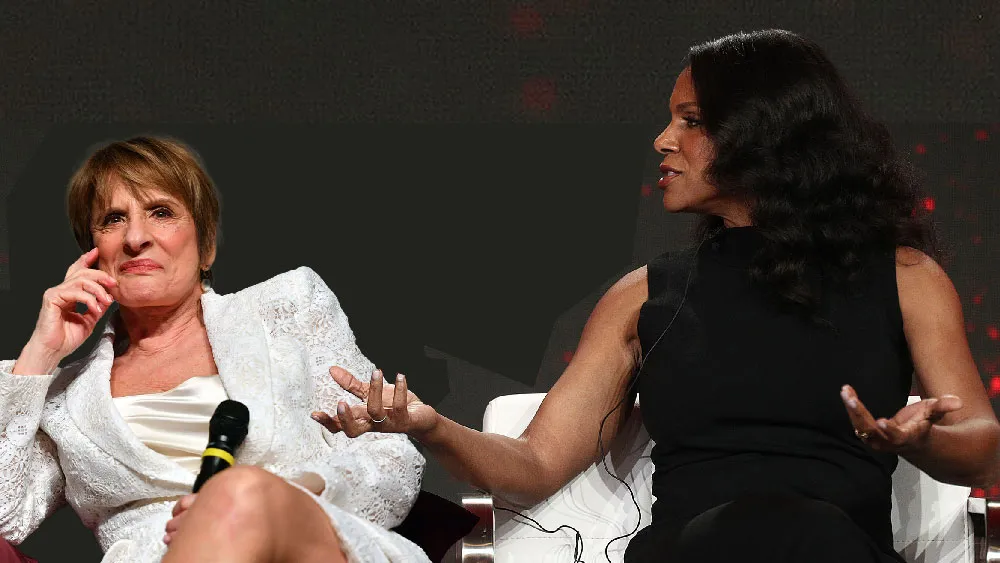November 16, 2012
Silver Linings Playbook
Jake Mulligan READ TIME: 5 MIN.
I always assumed a day would come where David O. Russell was no longer the furious filmmaker I knew and loved. The sheer, unbridled insanity of his early work would have to be set aside for something a bit safer - a career can't be sustained on films like "Spanking the Monkey." That day, sadly, has come.
Or rather, it comes and goes throughout "Silver Linings Playbook," the angry autuer's latest comedy about crippling human addictions and disabilities ("I Heart Huckabees" dealt with depression, "The Fighter" with drug addiction, and this one moves onto bipolar disorder). The picture teases an engagement with rage and mental illness, and occasionally dares to find the comedy within them. But at the end of the day, this is just a rom-com with a small modicum of edge.
Featuring Bradley Cooper as an O. Russell stand-in (the director earned infamy for a childish freakout he unleashed on Lily Tomlin and leaked to YouTube), the film has moments of specificity, and perhaps even of danger. It's hard to ignore just how similar Cooper's explosions feel compared with the director's.
Cooper's Pat Solitano is returning home from an 8-month stretch in a mental hospital, you see; a court-ordered stay imposed on him after he caught his wife cheating, and beat the man she was with to a bloody near-death pulp.
He returns home, occasionally haunted by flashbacks set to "La Cherie Amour," to try and find some comfort with his bookmaker Dad (Robert De Niro) and passive-aggressive mother (Jacki Weaver, of "Animal Kingdom" fame.) "I'm remaking myself," he claims in between a couple of their never-ending shouting matches. He's got his mantra - "Excelsior" - along with a plan to lose weight and read an entire year's High School English curriculum. But this is an O. Russell movie, so, at first, cooler heads certainly don't prevail. No one shoots a family breakdown like this man, and "Silver Linings" gives him plenty of opportunities.
But it can't stay a downer for very long, unfortunately. Enter "Hunger Games" heartbreaker Jennifer Lawrence, as Solitano's neighbor Tiffany. A young widow who drowns her grief in sex (she was fired from her job, she says, after she slept with every person in the office,) she soon attaches herself to Solitano and never lets go; clinging to him with the undying verve of a Howard Hawks-ian woman. Hopelessly searching for a connection, she blackmails Solitano into training with her for a dance competition (if it works out, she suggests, she'll sneak a letter to his estranged wife - beneath the court-mandated restraining order.) And that's where things get shaky.
If the film works, it's in their battered back-and-forth. This is old-school screwball comedy: a mad, too-smart-for-her-own-good woman picks her man, and spends the entire film harassing him until she gets what she wants. These exchanges are sharp and smart (providing an unfortunate contrast to the commercial claptrap the film later becomes.) "I'm still married too," Lawrence professes to her would-be-beau. "No, that's confusing," Cooper deadpans. "He's dead."
Some have cried foul at the film's treatment of its characters problems - De Niro's gambling addiction, Lawrence's grief, Cooper's bipolar rage. Personally, I don't feel that it's making light of them, or treating the topic insensitively; if Preston Sturges can make masterpiece screwball comedies about murdering your wife, then I don't think mental illness is off-limits for David O. Russell.
No, this movie's crime is something different, perhaps something far worse. It's how ordinary it becomes.
The abuse, the longing, the pain, the obsession with human imperfections - these are red herrings, not the film's topic. This is all about the kiss that happens at the end; not about the road we take to get there. The third act is packed full of 'movie moments' - big sports games, dance competitions, and unrealistic wagers, all designed to come together at the exact same time like a regular average movie is suppose to do. It cheapens every second that came before it - every freak-out, every discussion about the myriad options presented nowadays for pain meds, every painful father-to-son confession.
None of it matters anymore. Once we get to the finale, its as though O. Russell goes on autopilot. It's as if you can hear him from behind the camera thinking, "Well, I got the stuff I'm interested in out of the way; now let's send the audience home happy in the most generic way possible." His films have become more and more unfocused. "The Fighter" had similar problems, starting as a social realist film and ending as a "Rocky" sequel. It's as if he's trying to remove his own interests and eccentricities by the third act.
What "Silver Linings" really needs is a star like Mark Walhberg, (O. Russell's former muse; the two fell out when he cast Cooper here) someone who can bring both physicality and comedy to each scene. Cooper plays the role competently, but he never feels dangerous, he never feels unhinged. Combine this casting choice with the castrated third act, and you're left with a film that sets you up for something with an edge then leaves you disappointed as it reaches its humdrum 'Screenwriting for Dummies' style finale.
O. Russell tries to toe the line between making something personal, and making something that feels like it came off a conveyor belt. He ends up on the wrong side.






